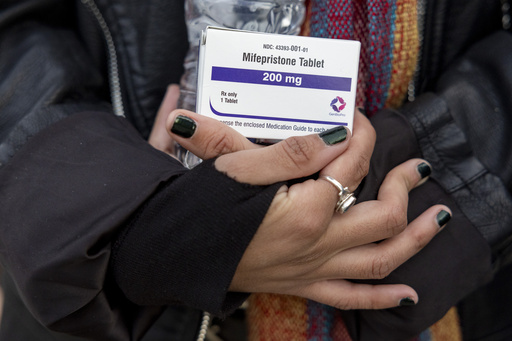DALLAS — A New York physician’s alleged choice to dispense abortion pills to patients in Texas and Louisiana has ignited a clash between New York’s protective legislation and the stringent abortion restrictions of the two conservative states, known for having some of the toughest abortion laws in the nation.
While Texas has not filed criminal charges against Dr. Maggie Carpenter, she faces felony charges in Louisiana for reportedly prescribing abortion pills to a minor. New York Governor Kathy Hochul firmly rejected a request from Louisiana Governor Jeff Landry for Carpenter’s extradition, stating she would never sign the order.
In an ongoing legal battle, Texas State District Judge Bryan Gantt imposed a $100,000 penalty on Carpenter and mandated her to cover legal fees for purportedly violating Texas regulations by prescribing abortion medication through telemedicine.
These legal confrontations underscore the tensions between the Democratic administration of New York and the Republican leadership of Texas and Louisiana. New York’s shield law is aimed at safeguarding abortion providers from legal repercussions when providing care to patients in states with prohibitive abortion laws. Notably, both Texas and Louisiana have laws that do not allow exceptions for abortion in instances of rape or incest.
Dr. Carpenter is among the co-founders of the Abortion Coalition for Telemedicine (ACT), a nonprofit organization headquartered in New York that offers legal and technical backing for telehealth providers. Following the Supreme Court’s reversal of Roe v. Wade, which granted states the authority to enforce abortion bans, ACT was established in 2022. The organization’s website highlights Carpenter as one of the co-founders who have utilized their combined medical and legal expertise to navigate this challenging environment.
Julie Kay, another co-founder and the executive director of ACT, expressed after the Texas ruling that even with persistent efforts by anti-abortion advocates to limit access to abortion services, particularly medication abortion, it remains safe, legal, and accessible through telehealth channels.
Texas initiated legal action against Carpenter in December for allegedly prescribing abortion pills to a woman in the Dallas area. Texas Attorney General Ken Paxton claimed the 20-year-old patient experienced complications that led to hospitalization related to the abortion. According to the state’s court filings, the biological father of the unborn child only learned about the pregnancy and abortion post-hospitalization.
During a recent hearing, Judge Gantt highlighted Carpenter’s failure to respond or attend court proceedings, subsequently issuing an injunction prohibiting her from prescribing abortion medications to Texas residents. Following the judge’s ruling, Paxton’s office characterized the case as a landmark ruling holding physicians accountable for illegal abortion practices in states with strict laws.
In Louisiana, Carpenter faces charges for allegedly prescribing abortion pills to a minor, marking a significant legal first in this context. A grand jury in Louisiana recently indicted her, leading to the issuance of an arrest warrant due to claims of prescribing medication to induce abortion without lawful oversight. Reports indicated that the minor faced a medical emergency after the procedure and required hospitalization.
Louisiana’s action came shortly after the state introduced a law designating mifepristone and misoprostol, used in early pregnancy terminations, as controlled substances. The American College of Obstetricians and Gynecologists affirms that extensive research has proven the safety and effectiveness of these medications.
Under Louisiana law, individuals convicted of performing unauthorized abortions can face severe penalties, including up to 15 years in prison and fines reaching $200,000. As abortion pills have emerged as the predominant method of abortion in the United States, they continue to be at the center of intense political and legal disputes following the Supreme Court’s decision to overturn Roe v. Wade.
Despite the ratcheting up of bans and restrictions in many Republican-led states since the Roe reversal, numerous Democratic states have enacted regulations designed to protect their residents from investigation or prosecution under other states’ abortion laws. At least eight states, including New York, have gone a step further by providing legal protections for healthcare professionals who prescribe abortion pills to individuals residing in states where such procedures are prohibited.




